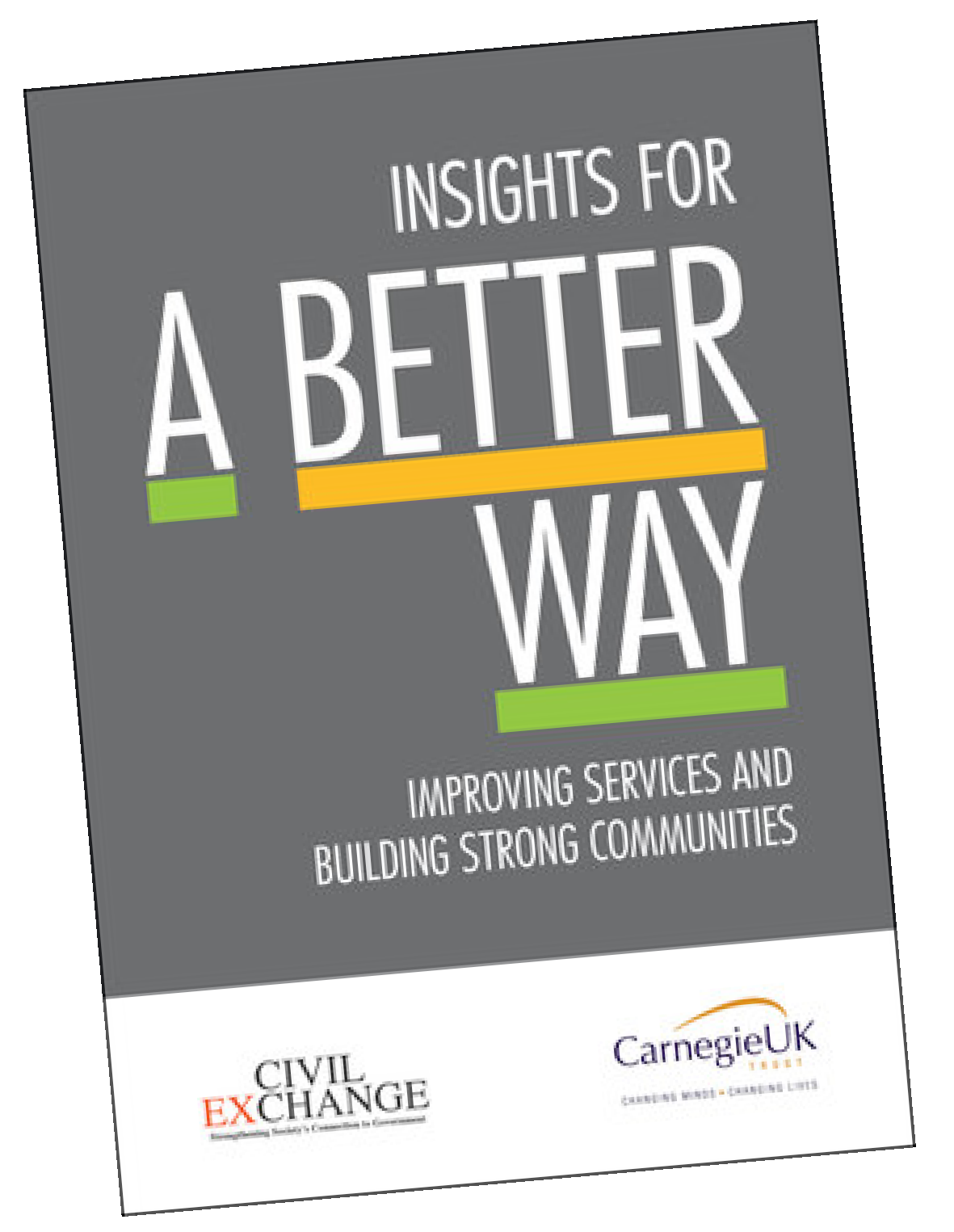Principles are better than targets
All too often universal targets, standard setting and inspection regimes fail to encourage the best behaviours or prevent the worst. Quality is a continual process, emerging from principles of human dignity, best reinforced by reflective practice, citizen engagement, challenge and accountability.
The evidence for principles
In 2017 we spent some time looking at this. Here is what we found:
Insights from our members and others
We've published a collection of essays about this and other propositions which show how our members and others are putting this into practice. Here's what they have to say on principles.

